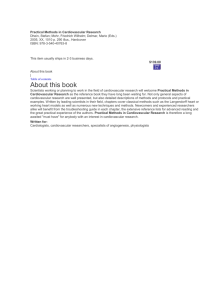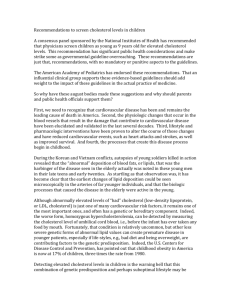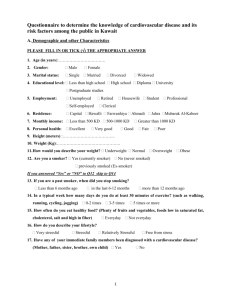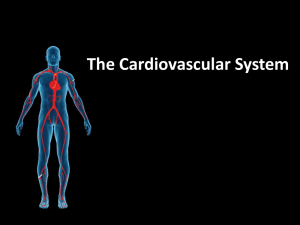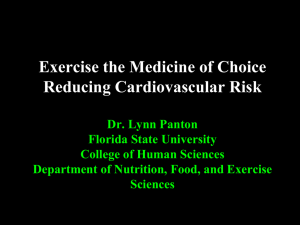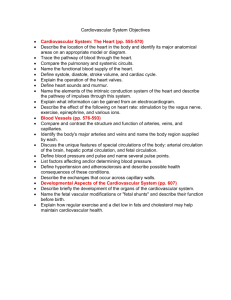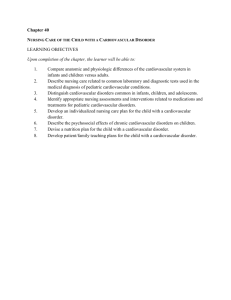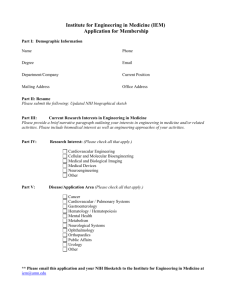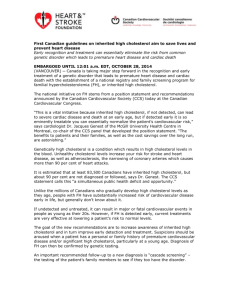Research Findings
advertisement
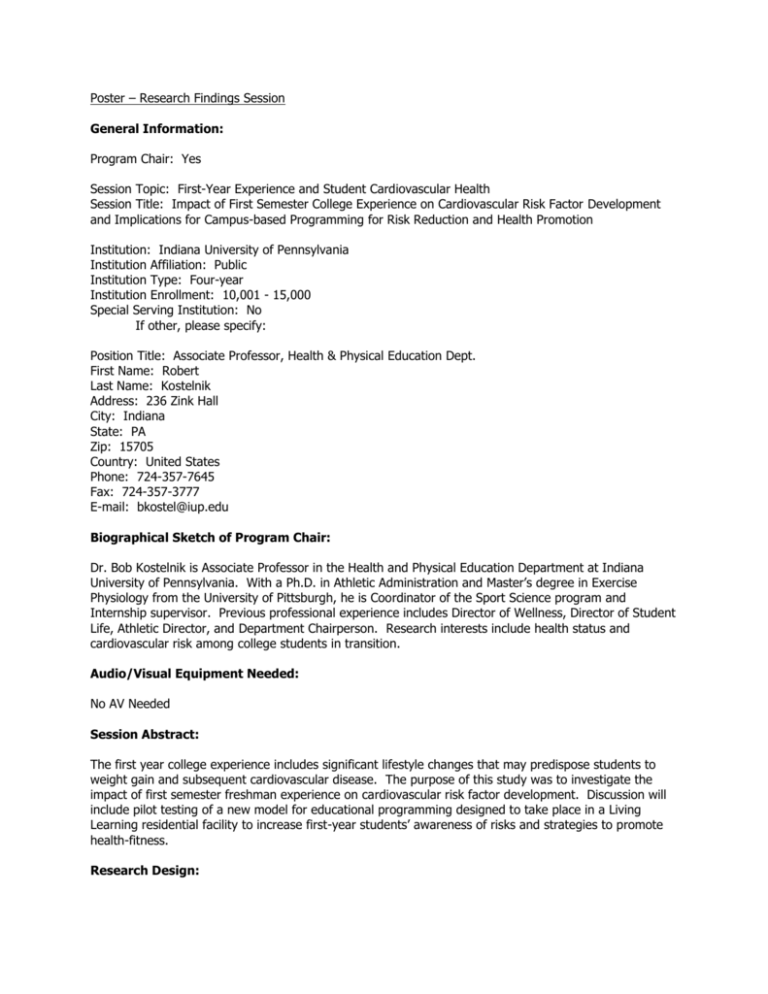
Poster – Research Findings Session General Information: Program Chair: Yes Session Topic: First-Year Experience and Student Cardiovascular Health Session Title: Impact of First Semester College Experience on Cardiovascular Risk Factor Development and Implications for Campus-based Programming for Risk Reduction and Health Promotion Institution: Indiana University of Pennsylvania Institution Affiliation: Public Institution Type: Four-year Institution Enrollment: 10,001 - 15,000 Special Serving Institution: No If other, please specify: Position Title: Associate Professor, Health & Physical Education Dept. First Name: Robert Last Name: Kostelnik Address: 236 Zink Hall City: Indiana State: PA Zip: 15705 Country: United States Phone: 724-357-7645 Fax: 724-357-3777 E-mail: bkostel@iup.edu Biographical Sketch of Program Chair: Dr. Bob Kostelnik is Associate Professor in the Health and Physical Education Department at Indiana University of Pennsylvania. With a Ph.D. in Athletic Administration and Master’s degree in Exercise Physiology from the University of Pittsburgh, he is Coordinator of the Sport Science program and Internship supervisor. Previous professional experience includes Director of Wellness, Director of Student Life, Athletic Director, and Department Chairperson. Research interests include health status and cardiovascular risk among college students in transition. Audio/Visual Equipment Needed: No AV Needed Session Abstract: The first year college experience includes significant lifestyle changes that may predispose students to weight gain and subsequent cardiovascular disease. The purpose of this study was to investigate the impact of first semester freshman experience on cardiovascular risk factor development. Discussion will include pilot testing of a new model for educational programming designed to take place in a Living Learning residential facility to increase first-year students’ awareness of risks and strategies to promote health-fitness. Research Design: This study employed pre/post assessment of cardiovascular risk factors during the fall semester of students’ first year. Pretesting occurred during the first three weeks of the semester, and post-testing was completed after twelve weeks. Assessment included a lipid panel with total cholesterol, HDL and LDL cholesterol, triglycerides, and fasting blood glucose (measured by finger stick method following a 12 hour fast utilizing the Cholestech LDX system), body mass index (using Quetelet’s Index calculation), and resting systolic and diastolic blood pressure (using normal resting blood pressure protocol). Detailed Summary: During the first year college experience, many young adults experience significant lifestyle changes that may negatively impact their health. Previous research has documented weight gain, as well as other behavioral changes, likely to increase cardiovascular and other risk factors during the transition in the new college environment. Research has also strongly suggested that multiple risk factors for heart disease, the leading cause of mortality in the United States, actually begin in adolescence. Consequently, young adults have increasingly become the target of research investigating strategies for cardiovascular risk reduction and prevention. The purpose of this study was to investigate the impact of the first semester college experience on cardiovascular risk factor development. Study participants were thirtyone male and female freshmen, aged 18-22 years. Consent was obtained as required by the university Institutional Review Board for Protection of Human Subjects. Pre-testing was conducted during the first three weeks of the first semester and included a lipid panel with total cholesterol, HDL and LDL cholesterol, triglycerides, and fasting blood glucose (measured by finger stick following a 12 hour fast utilizing the Cholestech LDX system), body mass index (using Quetelet’s Index calculation), and resting systolic and diastolic blood pressure. Post semester testing was conducted 12 weeks later. Results indicated statistically significant increases from pre to post testing in total cholesterol (p<.000), LDL (p < .001), fasting glucose (p < .031), weight (p < .020), and BMI (p < .005). Triglyceride levels significantly increased (p<.015) for students living in dorms compared to those living off campus. In conclusion, results of this study suggest that first semester college experience may have a negative impact on total cholesterol, LDL, fasting glucose, and triglycerides. Further research on the impact of first year experience on cardiovascular health is recommended, particularly concerning cardiovascular risk associated with living on campus and campus-based interventions. Implications of Research: This study suggests that the first year college experience has a negative impact on total cholesterol, LDL cholesterol, and fasting glucose levels. Furthermore, dorm living, as compared to living at home, may have a negative impact on cardiovascular health, particularly as measured by triglyceride levels. These findings support the conclusion that risk factor intervention during the first year experience may be particularly timely and valuable. Results of this study also support the recommendation for future research on specific risks associated with on-campus living. The current trend at many universities today is to move from the traditional concept of dormitories to “living-learning” communities. These “living learning” residential facilities are designed to foster positive academic and social connections for first-year students, and present unique opportunities for continued research and development of new intervention strategies. Successful intervention during this period of transition has the potential not only to positively impact student health status during the first year of college, but may also result in the establishment of long term behavior patterns that have benefit throughout the lifespan. Additional Presenters: Yes Presenter 1 First Name: Robert Last Name: Alman Title: Assistant Professor Institution: Indiana University of Pennsylvania Address: 110 Zink Hall City: Indiana State: PA Zip Code: 15705 E-mail Address: balman@iup.edu Phone: 724-357-4410 Country: United States Presenter 2 First Name: Elaine Last Name: Blair Title: Professor Institution: Indiana University of Pennsylvania Address: 225 Zink Hall City: Indiana State: PA Zip Code: 15075 E-mail Address: eblair@iup.edu Phone: 724-357-2770 Country: United States
